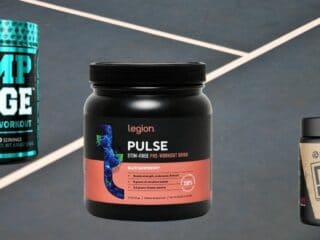Finding the right protein supplement can be a challenge, especially for people who rely on protein powders to supply their bodies with nourishing protein after difficult workouts. The ideal protein supplement will adapt to shakes, smoothies and even food. Whey protein is one common, frequently used protein source people consume daily for a variety of reasons.
What is whey protein?
Whey protein is a combination of various proteins isolated from whey, the substance that forms after cheese is produced. In dietary terms, it is referred to as a complete protein, meaning it contains all essential amino acids.
In some instances, people consume whey protein to improve muscle mass or as a protein supplement. Athletes, gym-goers, and those who frequently exercise commonly use and rely on protein supplements like whey protein. In many cases, whey protein accompanies athletes’ workout routines to increase energy. The two primary whey protein supplements are:
- Whey protein isolate
- Whey concentrate
What is the difference between the two?
When researching whey protein, people may come across two different options: whey protein isolate and whey concentrate. In simple terms, whey concentrate is best thought of as the option with less protein, carbs and fat.
The filtering process also differs between whey concentrate and whey protein isolate. Whey protein isolate goes through more processing than whey concentrate and therefore has more protein and less carbs, lactose, and fat than whey concentrate.
Is whey isolate better than whey concentrate?
Determining which whey protein is better than the other will vary from person to person. Generally speaking, whey protein isolate is the better choice for lactose-intolerant people, due to its decreased amount of lactose. Whey concentrate, on the other hand, is the better option for people looking for a cheaper option with less fat.
â Top 5 Whey Protein Isolate Powders
What is the benefit of whey protein?
Whey protein, whether in isolate or concentrate form, has substantial health benefits. Just like any supplement, this protein source can replenish depleted nutrient sources in the body. According to Mayo Clinic, some of the top health benefits of whey protein include:
- A full supply of amino acids to relieve malnutrition
- Improved lean muscle mass, especially for athletes who use the supplement after strenuous workouts
- A high source of protein
- Wound healing
When consuming whey protein as a supplement, it is also important to consider other protein sources in a daily diet. Common whole food protein sources include:
- Eggs
- Almonds
- Chicken
- Oats
- Milk
Final Thoughts
There are many types of protein supplements on the market to choose from. People who rely on protein supplements to keep their bodies and muscles healthy should consider all options and deciding on the best protein supplement for your needs is crucial.
To make the best whey protein supplement decision, consider the following:
- How often you plan to use the protein supplement
- The amount of protein you want to consume
- How a protein supplement will affect your diet
- If you want less fats and carbs (whey concentrate)
If you are unsure about adding a whey protein supplement to your diet, consult with a doctor, nutritionist or dietitian to learn how it could impact your health.
Disclaimers: This article does not constitute professional medical advice, nor can it replace the advice of a licensed professional









